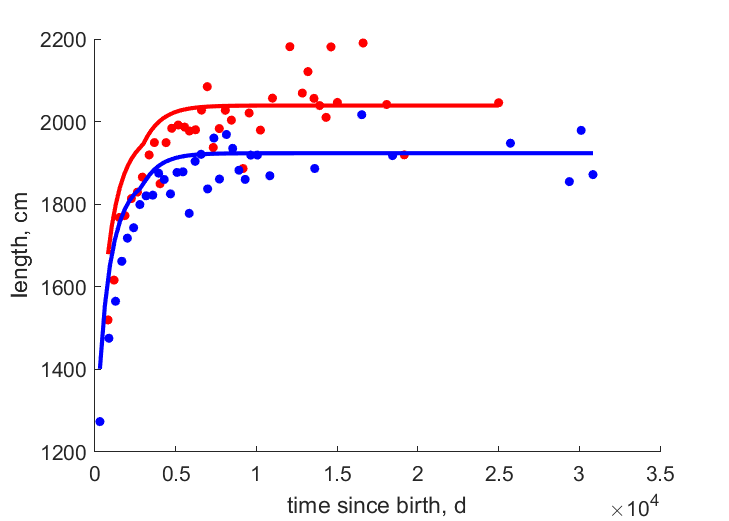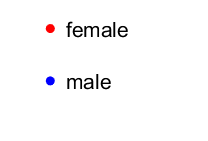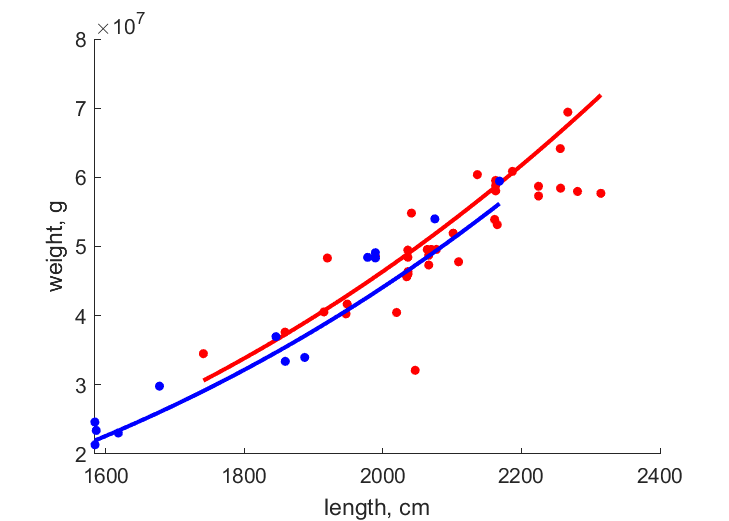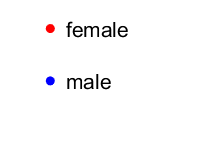Predictions & Data for this entry
| Model: stx | climate: MA, MB, MC, ME | migrate: Ml | phylum: |
| COMPLETE = 2.5 | ecozone: MC | food: bxM, xiCvf, xiCic, xiCik | class: |
| MRE = 0.009 | habitat: 0iMp | gender: Dg | order: |
| SMSE = 0.001 | embryo: Mv | reprod: O | family: |
Zero-variate data
| Data | Observed | Predicted | (RE) | Unit | Description | Reference |
|---|---|---|---|---|---|---|
| tg | 342 | 314.4 | (0.08062) | d | gestation time | AnAge |
| tx | 183 | 184.3 | (0.006997) | d | time since birth at weaning | AnAge |
| tp | 2555 | 2958 | (0.1579) | d | time since birth at puberty for females | AguiLock1987 |
| tpm | 2864 | 2874 | (0.003644) | d | time since birth at puberty for males | AnAge |
| am | 4.161e+04 | 3.986e+04 | (0.04198) | d | life span | AnAge |
| Lb | 1150 | 1147 | (0.002979) | cm | length at birth | Wiki |
| Lp | 1830 | 1943 | (0.06176) | cm | length at puberty | Wiki |
| Li_f | 2050 | 2039 | (0.005365) | cm | ultimate length for females | AguiLock1987 |
| Li_m | 1920 | 1923 | (0.001807) | cm | ultimate length for males | AguiLock1987 |
| Wwb | 1.8e+06 | 1.889e+06 | (0.04928) | g | wet weight at birth | AnAge |
| Ri | 0.001096 | 0.001143 | (0.04339) | #/d | maximum reprod rate | AnAge |
Uni- and bivariate data
| Data | Figure | Independent variable | Dependent variable | (RE) | Reference |
|---|---|---|---|---|---|
| tL_f |   | time since birth | length | (0.03384) | AguiLock1987 |
| tL_m |   | time since birth | length | (0.03162) | AguiLock1987 |
| LW_f |   | length | weight | (0.07901) | LockWate1986 |
| LW_m |   | length | weight | (0.08364) | LockWate1986 |
Pseudo-data at Tref = 20°C
| Data | Generalised animal | Balaenoptera physalus | Unit | Description |
|---|---|---|---|---|
| v | 0.02 | 0.1338 | cm/d | energy conductance |
| kap | 0.8 | 0.8467 | - | allocation fraction to soma |
| kap_R | 0.95 | 0.95 | - | reproduction efficiency |
| p_M | 18 | 28.25 | J/d.cm^3 | vol-spec som maint |
| k_J | 0.002 | 0.002 | 1/d | maturity maint rate coefficient |
| kap_G | 0.8 | 0.7987 | - | growth efficiency |
Discussion
- males are assumed to differ from females by {p_Am} and E_Hp only
- neonates are much longer for their weight than adults, so the shape coefficient is assumed to change linear in length till puberty
- mod_1: males have equal state variables at b, compared to females
Acknowledgment
- The creation of this entry was supported by the Norwegian Science Council (NFR 255295)
Bibliography